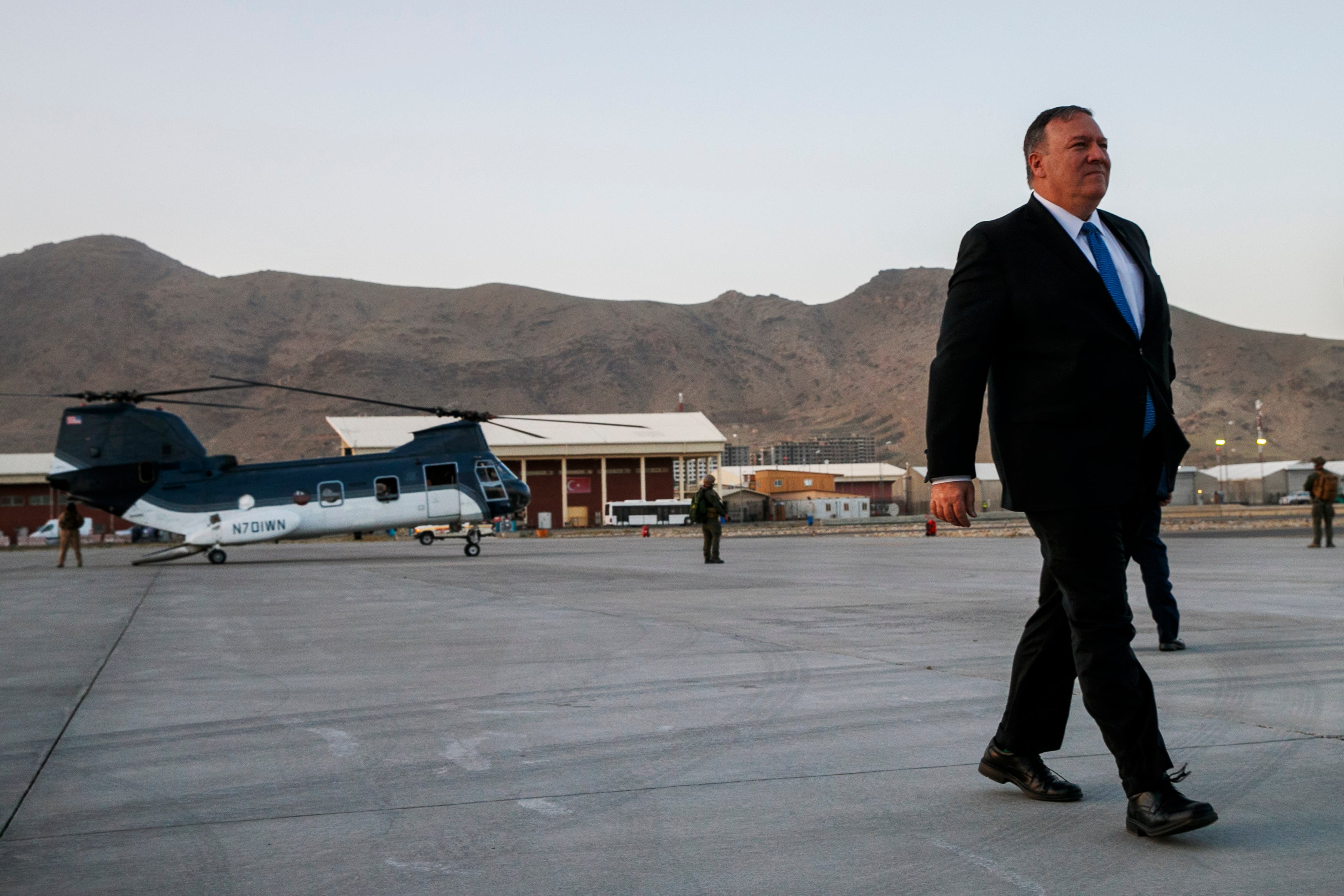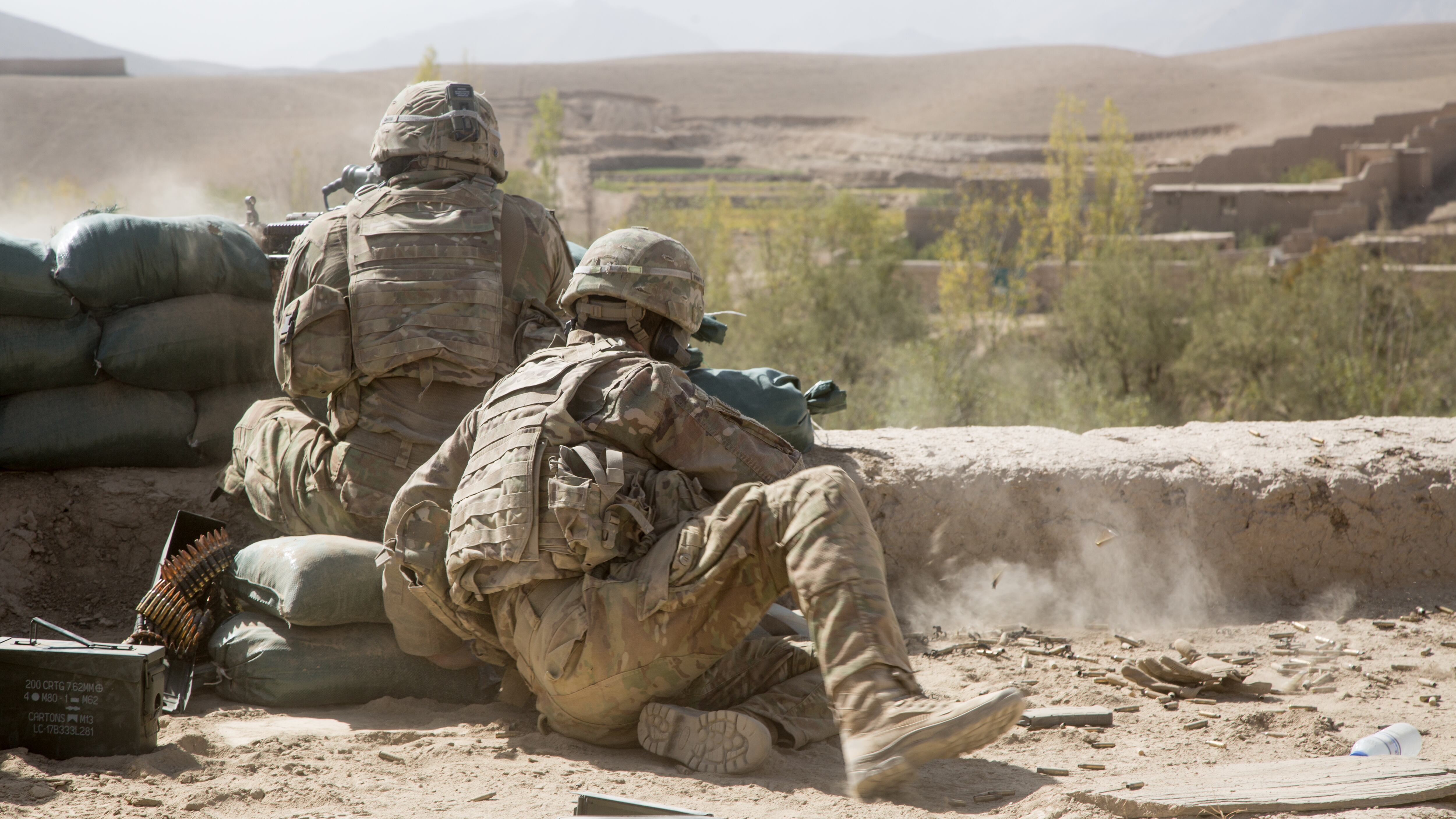Turnover and a lack of leadership supervising all security sector assistance activities in Afghanistan undermined U.S. and international efforts to bolster Afghan security forces, according to a new watchdog report.
John Sopko, the Special Inspector General for Afghanistan Reconstruction, said that his watchdog group found “no single person, agency, military service, or country responsible for overseeing all of the U.S. and international activities to develop the Afghan security forces.”
Instead, Sopko said that members of the U.S. military and U.S. government agencies were deployed to tackle security-assistance activities for the remainder of their individual deployments — often lasting no longer than a year. But the approach often was modified once a new batch of personnel took over since a comprehensive and multi-year plan was not in place, Sopko said.
“These divisions often created strains on both unity of command and unity of effort, and I believe led to that oft-used quote that we didn’t fight one 18-year war in Afghanistan, but we fought 18 one-year wars,” Sopko said during an event at the Center for Strategic and International Studies on July 29 highlighting SIGAR’s June report. “And I would say we fought 36 wars because many of the people sent to Afghanistan served only six months.”
The report, titled “Divided Responsibility: Lessons from U.S. Security Sector Assistance Efforts in Afghanistan,” was published in June 2019. More than 100 former and current government officials were interviewed for the report.
The report acknowledges that the commander of the U.S.-led NATO coalition Resolute Support is “largely responsible” for reconstructing Afghan forces like the Afghan National Defense and Security Forces. But, it claims the commander does not have complete authority to determine specific strategies and action NATO countries should employ to train and advise the ANDSF across Afghanistan.
“Rather the commander provides overarching guidance and coordinates the countries’ various activities,” SIGAR’s report says.
Ultimately, this has caused “asymmetries” in advancing the ANDSF and has hampered standardizing security sector assistance programs, the report claims.
Officials from Resolute Support and U.S. Central Command did not respond to requests for comment from the Military Times.
SIGAR advises the Office of the Secretary of Defense for Policy, with the assistance of CENTCOM, the Joint Chiefs of Staff, the Defense Security Cooperation Agency (DSCA), and others to spearhead an interagency review to decide if the U.S. will continue participating in security sector assistance activities with Resolute Support or “transition to a more conventional model led by the U.S. Embassy.”
Likewise, the report recommends the Joint Staff establish a DOD-led and Pentagon-based Security Cooperation Coordination Cell for Afghanistan intended to advance coordination of security sector assistance efforts. Members would be expected to serve at least a three-year tour along with regular deployments to Afghanistan.
The recommendations came before Secretary of State Mike Pompeo made public comments that President Donald Trump wants to pull troops out of Afghanistan before the 2020 election.
RELATED

The report also tackled issues concerning field advising and equipping Afghan forces.
Although those at the Security Assistance Office in Afghanistan told the watchdog Afghan input was routinely taken into account, the report says former commander of Combined Security Transition Command-Afghanistan Lt. Gen. Daniel Bolger claimed “Afghans were informed and directed, not asked or consulted.” Another retired officer who was unnamed told SIGAR that obtaining Afghan involvement equaled “acquiring a signature.”
Sopko argued Afghans must take greater responsibility in the direction, execution, and tracking of their equipment procurement and other things, in the event the U.S. adopts a more traditional security cooperation in Afghanistan.
To help Afghan forces become less dependent on U.S. forces, the report recommends that the U.S.-led Combined Security Transition Command-Afghanistan pinpoint strategies to formally and consistently boost Afghan involvement in the equipping process.
Sopko said he was pragmatic about the likelihood of any dramatic changes, but was hopeful about the possibility of some “common-sense” reforms.
“We are not naive," Sopko said. "I’ve been doing this long enough and my colleagues have too. We know there is no ‘silver bullet’ for the problems we identified, and no silver bullet that will fix all of these challenges. We also recognize that after 17 years of U.S. security sector assistance, that transformative changes are highly unlikely.”




